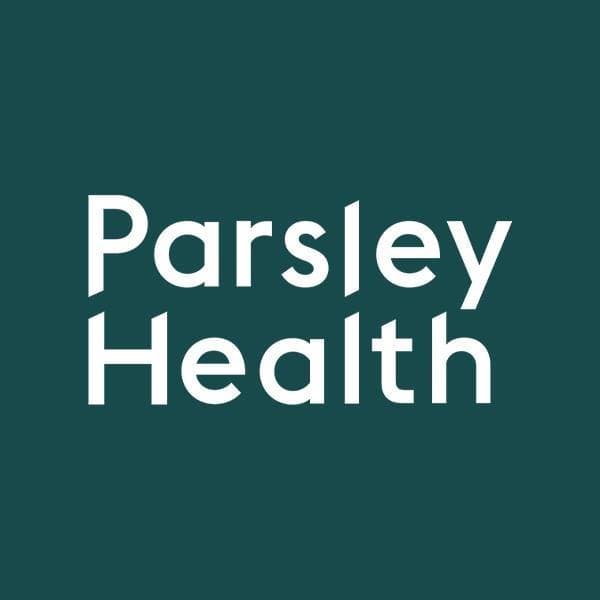Heart disease is a major cause of death worldwide, but many of its risk factors are preventable. By making simple changes to your diet, exercise routine, and lifestyle, you can significantly lower your chances of developing cardiovascular disease. This article will guide you through understanding heart disease, the importance of a healthy diet, the role of physical activity, managing stress, and other key aspects of heart health.
Key Takeaways
- Heart disease is largely preventable by adopting a healthy lifestyle.
- Eating a balanced diet rich in fruits, vegetables, and whole grains can boost heart health.
- Regular physical activity is crucial for maintaining a healthy heart.
- Managing stress through techniques like mindfulness can benefit your heart.
- Avoiding smoking and limiting alcohol intake are essential for heart health.
Understanding Cardiovascular Disease
What is Cardiovascular Disease?
Cardiovascular disease (CVD) refers to a group of disorders affecting the heart and blood vessels. It is one of the leading causes of death worldwide. These diseases can lead to heart attacks, strokes, and other serious health issues.
Common Types of Cardiovascular Disease
- Coronary Artery Disease (CAD): This is the most common type and occurs when the arteries supplying blood to the heart become narrow or blocked.
- Heart Failure: A condition where the heart cannot pump blood effectively.
- Arrhythmia: Irregular heartbeats that can be too fast, too slow, or erratic.
- Heart Valve Problems: Issues with one or more of the heart's valves that can affect blood flow.
Risk Factors Associated with Cardiovascular Disease
Several factors can increase the risk of developing CVD, including:
- High Blood Pressure: Puts extra strain on the heart and blood vessels.
- High Cholesterol Levels: Can lead to the buildup of plaques in arteries.
- Smoking: Damages the blood vessels and heart.
- Diabetes: Increases the risk of heart disease.
- Obesity: Excess weight can lead to heart problems.
- Physical Inactivity: Lack of exercise can contribute to heart disease.
- Unhealthy Diet: Diets high in saturated fats, trans fats, and cholesterol can increase the risk.
Understanding these risk factors is crucial for preventing cardiovascular disease. Making lifestyle changes can significantly reduce your risk and improve overall heart health.
The Role of Diet in Heart Health
Heart-Healthy Foods to Include
Eating the right foods can make a big difference in keeping your heart healthy. Choose foods that are rich in nutrients but low in calories. This means eating lots of vegetables, fruits, and whole grains. Also, include low-fat dairy products, skinless poultry, fish, legumes, and non-tropical vegetable oils in your diet.
Foods to Avoid for Better Heart Health
To protect your heart, it's important to avoid certain foods. Stay away from red and processed meats, refined carbohydrates, and foods and drinks with added sugar. Also, limit your intake of sodium and foods with trans fats. These foods can increase your risk of heart disease.
The Impact of Diet on Cholesterol Levels
What you eat can greatly affect your cholesterol levels. Foods high in saturated fats and trans fats can raise your bad cholesterol (LDL) and lower your good cholesterol (HDL). On the other hand, foods rich in omega-3 fatty acids, like fish, can help improve your cholesterol levels.
A balanced diet not only helps in managing heart disease but also boosts overall health and energy levels.
Importance of Regular Physical Activity
Types of Exercises Beneficial for Heart Health
Engaging in regular physical activity is one of the best things you can do for your heart. It helps your heart pump blood more efficiently and can lower the risk of heart disease. There are different types of exercises that are particularly good for heart health:
- Aerobic exercises: Activities like walking, running, swimming, and cycling improve your heart's ability to pump blood and increase your breathing rate.
- Strength training: Lifting weights or using resistance bands helps build muscle and can improve your overall metabolism.
- Flexibility exercises: Stretching and yoga can improve your range of motion and reduce the risk of injury.
How Much Exercise is Enough?
You don't need to be a marathon runner to benefit from exercise. Aim for at least 30 minutes of moderate-intensity exercise, like brisk walking, on most days of the week. If you're just starting out, you can break it into shorter sessions, like three 10-minute walks. The key is to stay consistent and gradually increase your activity level.
Tips for Staying Active
Staying active can be challenging, but here are some tips to help you keep moving:
- Set realistic goals: Start with small, achievable goals and gradually increase your activity level.
- Find activities you enjoy: Whether it's dancing, hiking, or playing a sport, choose activities that you find fun.
- Make it social: Exercise with friends or join a group to stay motivated.
- Incorporate activity into your daily routine: Take the stairs instead of the elevator, or park farther away from your destination.
Regular physical activity not only benefits your heart but also improves your mood, helps control your weight, and boosts your overall well-being.
Managing Stress for a Healthy Heart
How Stress Affects Heart Health
Stress can lead to higher blood pressure and other risk factors for heart disease. When people are stressed, they might overeat, drink alcohol, or smoke, which are all unhealthy ways to cope. Finding healthy ways to manage stress is crucial for heart health.
Effective Stress Management Techniques
There are many ways to manage stress effectively:
- Physical activity
- Relaxation exercises
- Mindfulness
- Yoga
- Meditation
The Role of Mindfulness and Meditation
Mindfulness and meditation can help lower stress levels. These practices involve focusing on the present moment and can reduce anxiety and improve overall well-being.
Taking time each day to practice mindfulness or meditation can make a big difference in your stress levels and heart health.
The Dangers of Smoking and Alcohol
How Smoking Harms the Heart
Smoking is a major risk factor for heart disease. People who smoke have more than twice the risk of a heart attack compared to non-smokers. Even smoking one or two cigarettes a day can significantly increase your risk of heart attack or stroke. Chemicals in tobacco can damage the heart and blood vessels, making the heart work harder to supply oxygen to the body and brain. Secondhand smoke also poses a risk.
Benefits of Quitting Smoking
Quitting smoking can greatly improve your heart health. Research shows that you are three times more likely to successfully quit smoking if you use support services and stop-smoking medicines like patches or gum. Here are some benefits of quitting smoking:
- Reduced risk of heart attack and stroke
- Improved lung function
- Lower blood pressure
- Better overall health
Moderation in Alcohol Consumption
Drinking too much alcohol can lead to heart and blood vessel problems, including atrial fibrillation, heart failure, high blood pressure, and stroke. If you drink, it is important to do so in moderation. Here are some guidelines:
- Men and women should not regularly drink more than 14 units of alcohol per week.
- Spread your drinking over three or more days if you consume up to 14 units a week.
- Try to have several drink-free days each week.
Always avoid binge drinking, as it increases the risk of a heart attack.
By understanding the dangers of smoking and alcohol, you can take steps to protect your heart and improve your overall health.
Monitoring and Managing Blood Pressure
Understanding Blood Pressure Readings
Blood pressure measures the force of blood against your artery walls. It's recorded as two numbers: systolic (pressure during heartbeats) and diastolic (pressure between beats). A normal reading is below 120/80 mmHg. High blood pressure, or hypertension, can lead to serious health problems like heart disease and stroke.
Lifestyle Changes to Lower Blood Pressure
To manage your blood pressure, consider these lifestyle changes:
- Eat a low-sodium diet.
- Maintain a healthy weight.
- Limit alcohol consumption.
- Exercise regularly.
Medications for Blood Pressure Management
Sometimes, lifestyle changes aren't enough. Your doctor may prescribe medications to help control your blood pressure. It's important to take these as directed and discuss any side effects with your healthcare provider.
Keeping your blood pressure in check is crucial for heart health. Regular monitoring and following your doctor's advice can make a big difference.
Recognizing and Responding to Heart Disease Symptoms
Common Symptoms of Heart Disease
Heart disease can show up in many ways. Chest pain or discomfort is a common sign. Some people feel pain in their arms, back, neck, or jaw. Shortness of breath, feeling tired, and swelling in the legs, ankles, or feet can also be symptoms.
When to Seek Medical Help
If you have chest pain that doesn't go away, call 911 right away. Don't wait more than a few minutes. If you have trouble breathing, feel dizzy, or have a fast or uneven heartbeat, get help quickly. It's better to be safe and get checked out.
Emergency Response to Heart Attacks
- Call 911 immediately.
- Chew and swallow an aspirin, unless you're allergic or told not to by a doctor.
- Stay calm and try to rest while waiting for help.
- If the person is unconscious, start CPR if you know how.
Quick action can save lives. Knowing what to do in an emergency can make a big difference.
The Importance of Regular Health Screenings
Key Screenings for Heart Health
Regular health screenings are essential for catching potential heart issues early. High blood pressure and high cholesterol can damage the heart and blood vessels. Common screenings include:
- Blood Pressure: Starting at age 18, blood pressure should be checked at least once every two years. If you have risk factors, yearly checks are recommended.
- Cholesterol Levels: Men aged 45-65 and women aged 55-65 should get screened every 1-2 years. After 65, yearly tests are advised.
- Blood Sugar Levels: Screening for type 2 diabetes is crucial, especially if you are overweight or have a family history of diabetes.
Frequency of Health Check-Ups
Make an appointment with your healthcare provider each year. They will check your vital signs and overall health. They will also guide you on how often you need blood tests to measure cholesterol, blood sugar, and other important levels. Keeping up with your appointments allows your provider to catch signs of heart disease early.
Interpreting Screening Results
Understanding your screening results is vital. Your healthcare provider will explain what your numbers mean and whether you need to take action. If your results show high blood pressure, high cholesterol, or high blood sugar, your provider will recommend lifestyle changes or medications to manage these conditions.
Regular screenings and check-ups are your first line of defense against heart disease. Early detection can lead to more effective treatment and a healthier life.
Conclusion
Taking care of your heart is one of the most important things you can do for your health. By making small changes in your daily habits, you can greatly reduce your risk of cardiovascular disease. Remember to eat a balanced diet rich in fruits, vegetables, and whole grains, stay active, avoid smoking, and manage stress. Even though you can't change some risk factors, like your age or family history, you can still take steps to protect your heart. Talk to your healthcare provider about what you can do to keep your heart healthy. Every little bit helps, and it's never too late to start making healthier choices.
Frequently Asked Questions
What is cardiovascular disease?
Cardiovascular disease includes conditions that affect the heart and blood vessels, like heart attacks and strokes.
What foods should I eat for a healthy heart?
To keep your heart healthy, eat lots of fruits, vegetables, whole grains, nuts, fish, and poultry. Avoid red and processed meats, sugary foods, and drinks.
How does exercise help my heart?
Exercise strengthens your heart, improves blood flow, and helps control weight, blood pressure, and cholesterol levels.
Can stress affect my heart?
Yes, stress can raise your blood pressure and lead to unhealthy habits like overeating or smoking, which harm your heart.
Why is quitting smoking important for heart health?
Smoking damages your heart and blood vessels. Quitting smoking lowers your risk of heart disease and improves overall health.
How often should I get my heart checked?
You should get regular health check-ups. Your doctor can tell you how often based on your age, health, and risk factors.
























